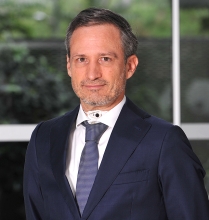Pharmaceutical and healthcare industry: the impact of the COVID-19 measures
Spain Corporate Commentary
Some of the measures adopted in recent weeks to tackle the economic and social impact of COVID-19 have special implications for the healthcare and pharmaceutical industry. In this article we analyze the key information that companies in this field need to take into account.
In Royal Decree 463/2020, of March 14, 2020, the Spanish government, acting under article 116.2 of the Spanish Constitution and article four, letters b) and d) of Organic Law 4/1981, of June 1, 1981, declared the state of emergency throughout Spain, originally for a 15 day period, to confront the public health emergency caused by COVID-19 which, according to the World Health Organization, on March 11, 2020, reached the point where it could be classed as an international pandemic.
The main measures affecting the pharmaceutical and healthcare industry in this context are described below.
Supply difficulties for medicinal products or medical devices
- Under the amendment introduced by Royal Decree-Law 6/2020 to Organic Law 3/1986, where a medicinal product, a medical device or any product necessary for the protection of health is affected by exceptional supply difficulties, the government may temporarily establish centralized supply or condition the prescription of those products on identification of high risk groups, performance of analytical and diagnostic testing, fulfillment of protocols, sending of information to the health authorities on the progress of treatments or on other similar details.
Temporary government control allowed over prices of non-prescription medical devices
- Following amendment of article 94.3 of the revised Law on the Safeguards for and the Rational Use of Medicinal Products and Medical Devices, introduced by Royal Decree-Law 7/2020, the government is authorized to determine the price-setting mechanism for non-prescription medicinal products and medical devices, and of other products necessary for the protection of health, under an objective and transparent general regime. Where there is an exceptional health situation, the Inter-Ministerial Committee on Medicinal Product Pricing is allowed to set the maximum public retail price for those medicinal products and medical devices, while that exceptional situation lasts.
Measures to reinforce the National Health System
- Article 12 of Royal Decree 463/2020 contains measures to reinforce the National Health System, in particular, the following:
- All the civil healthcare authorities of public authorities in Spain, other public officials and workers providing services to them, are placed under the orders of the Health Ministry if this is necessary for the protection of persons, property and places, and extraordinary services may be required of them.
- Autonomous community and local authorities retain the management of healthcare centers and must ensure that they are operating adequately at all times, although the Health Ministry reserves the right to enforce the necessary powers to guarantee the provision of the service.
- Military healthcare personnel and centers will be used to reinforce the National Health System throughout Spain.
- The Health Ministry may exercise any powers that may be necessary with respect to private healthcare centers, services and establishments.
For these purposes, under Order SND/232/2020, of March 15, 2020, adopting measures regarding human and material resources for managing the health crisis caused by COVID-19, it is established that the autonomous communities will have available to them all private healthcare centers and establishments, their personnel, and occupational accident mutual insurance companies for as long as, due to the progression or effects of the COVID-19, the healthcare needs of the population cannot be met with the material and human resources assigned to each autonomous community.
- In this respect, implementing the provisions of RD 463/2020, the following ministerial orders have been approved by the Health and Consumer Affairs Ministry, adopting the described measures to reinforce the National Health System:
- Order SND/232/2020, of March 15, 2020 adopting measures regarding human and material resources to manage the health crisis caused by COVID-19: (i) an extension is established for the hiring of student doctors in their last year of training in the main specialties involved in the treatment of COVID-19 (geriatrics, occupational medicine, family and community medicine, critical care medicine, internal medicine, preventive medicine and public health, pneumology, etc.); (ii) all shifts in progress or scheduled shifts of trainee doctors are suspended so they can provide their services at units needing additional staff; (iii) the temporary hiring on an exceptional and transitional basis of medicine graduates (with or without professional certificates) who are not qualified specialist doctors, of professionals with a specialist doctor qualification obtained in countries that are not EU member states, and of retired healthcare personnel; (iv) the temporary reinstatement of personnel with a temporary arrangement to carry out labor union duties is allowed; (v) the autonomous communities are authorized to hire medical and nursing students on a temporary basis; and (vi) it is decided that public spaces will be fitted out to be used for healthcare services.
- Order SND/233/2020, of March 15, 2020, establishing certain reporting obligations under Royal Decree 463/2020: imposes an obligation on legal entities located in Spain engaged in activities for manufacturing and importing masks, quick diagnostic kits, protection googles, nitrile gloves, etc., to provide the Health Hinistry with information on the numbers of units of those products they have available.
- Order SND/234/2020, of March 15, 2020 on adoption of provisions and measures regarding containment and sending of information to the Health Ministry as a result of the health crisis caused by COVID-19: the autonomous communities are required to report to the Health Ministry (i) the adopted containment measures; (ii) information on care capacity; (iii) epidemiological information; and (iv) information on needs relating to material resources, human resources, and information.
- Moreover, Royal Decree 463/2020 allows the Health Ministry to apply the following measures to ensure supplies of goods and services necessary for the protection of public health:
- Temporarily take control of and occupy industries, factories, operations or premises of any nature, including private healthcare establishments and those operating in the pharmaceutical sector.
- Make temporary requisitions of all types of goods and impose mandatory personal obligations to provide services necessary for the protection of public health.
- Give the necessary orders to ensure operation of the market and the services of the centers of production affected by shortages of products necessary for the protection of public health.
General extraordinary measures in relation to private law legal entities
Lastly, due their relevance at this time for the pharmaceutical and healthcare industry, highlighted below are certain extraordinary measures adopted generally for private law legal entities:
- The three-month period following the fiscal year-end for the preparation of individual or consolidated financial statements by legal entities required to do so is suspended during the state of emergency, and will resume for another three months from when the state of emergency ends.
- In the case of financial statements that had already been prepared on the date of declaration of the state of emergency, the period for their verification by auditors, where they are subject to statutory audit, is extended until two months after the end of the state of emergency.
- During the state of emergency period, companies, associations or foundations of all types are allowed to hold meetings of their governing bodies by video or audio conference call, subject to certain requirements, even if their bylaws do not specifically allow that form of holding meetings.
Contacts


